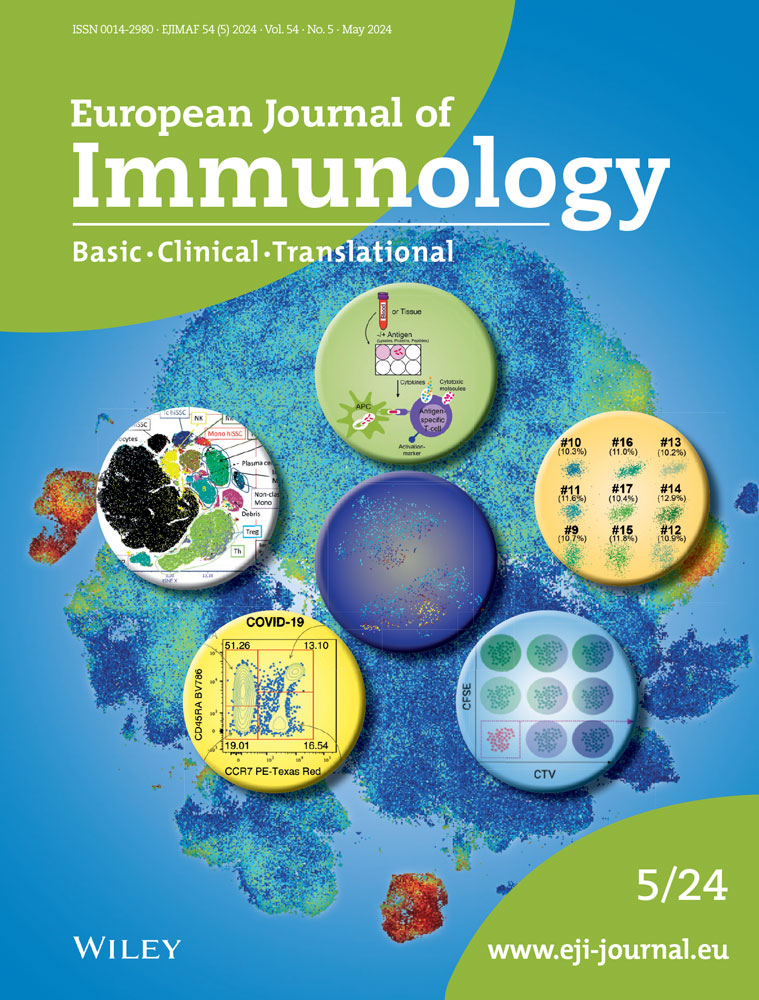Transcriptomic Signatures Predict Rubella Virus-Induced Cytokine and Chemokine Responses in Female MMR Recipients
IF 4.5
3区 医学
Q2 IMMUNOLOGY
引用次数: 0
Abstract
The study examined the relationship between rubella virus (RV)-induced gene expression and proinflammatory cytokine/chemokine secretion in females previously vaccinated with MMR. Gene clusters enriched for functional pathways of innate immune system activation and antiviral responses were found to predict RV-specific MCP-1, MCP-4, IP-10, and IL-2 secretion.

转录组学特征预测风疹病毒诱导的女性MMR受体细胞因子和趋化因子反应
该研究检测了风疹病毒(RV)诱导的基因表达与先前接种过MMR疫苗的女性促炎细胞因子/趋化因子分泌之间的关系。研究发现,先天免疫系统激活和抗病毒反应功能通路富集的基因簇可以预测病毒特异性MCP-1、MCP-4、IP-10和IL-2的分泌。
本文章由计算机程序翻译,如有差异,请以英文原文为准。
求助全文
约1分钟内获得全文
求助全文
来源期刊
CiteScore
8.30
自引率
3.70%
发文量
224
审稿时长
2 months
期刊介绍:
The European Journal of Immunology (EJI) is an official journal of EFIS. Established in 1971, EJI continues to serve the needs of the global immunology community covering basic, translational and clinical research, ranging from adaptive and innate immunity through to vaccines and immunotherapy, cancer, autoimmunity, allergy and more. Mechanistic insights and thought-provoking immunological findings are of interest, as are studies using the latest omics technologies. We offer fast track review for competitive situations, including recently scooped papers, format free submission, transparent and fair peer review and more as detailed in our policies.

 求助内容:
求助内容: 应助结果提醒方式:
应助结果提醒方式:


